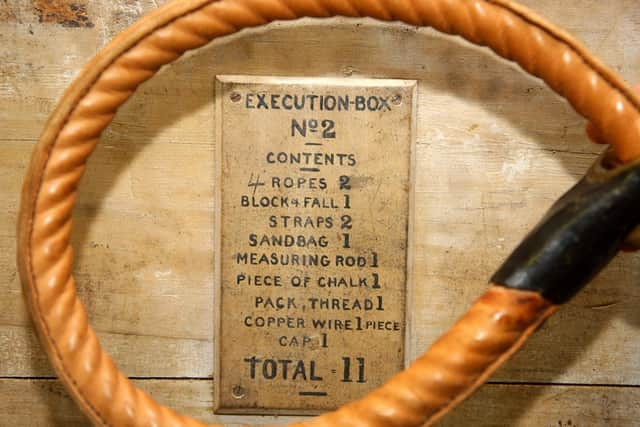Home Affairs Minister: ‘Death penalty has power and solemnity’ (1962)
and live on Freeview channel 276
Mr Desmond Boal (Unionist. Shankill), from whom the party whip had been withdrawn in 1961, was the only member on the government benches to vote for the motion.
Miss Elizabeth Maconachie and Professor Frederick Lloyd-Dodd, Unionist members for Queen’s University had abstained.
Advertisement
Hide AdAdvertisement
Hide AdMr Brian Faulkner (Minister of Home Affairs) said the law regarding capital punishment was being kept under review the whole time and the government would not hesitate to bring proposals before the House if it considered that the time had arrived when such proposals should be made.


“To agree to the setting up of a committee,” said Mr Faulkner, “would be an evasion of the government’s responsibility, and the government is not prepared to evade its responsibility in that way.”
He added: “It would give rise to a feeling in the community of an impending change in this matter. At the present time that would not be in the interests of this community, and it is in the interests of the whole community that the government has a duty to look after. That duty it will not shirk.”
Later in his statement to the House, Mr Faulkner said: “We are facing a crime wave and I am satified that this House should do nothing that would give the impression that punishment will be modified.
Advertisement
Hide AdAdvertisement
Hide Ad“The death penalty has a power and solemnity in the public life of the community. The crime of murder should be punished, and there is a lot to be said for reserving for this, the most dastardly of all crimes, the most serious punishment that can be inflicted.
“It is a punishment that should mark the sense of reprobation by the community of the crime.”
Mr Faulkner said that in considering the subject of the seriousness of capital punishment, political or any other kind of expediency would never enter his mind or that of any other member of the government.
Comment Guidelines
National World encourages reader discussion on our stories. User feedback, insights and back-and-forth exchanges add a rich layer of context to reporting. Please review our Community Guidelines before commenting.